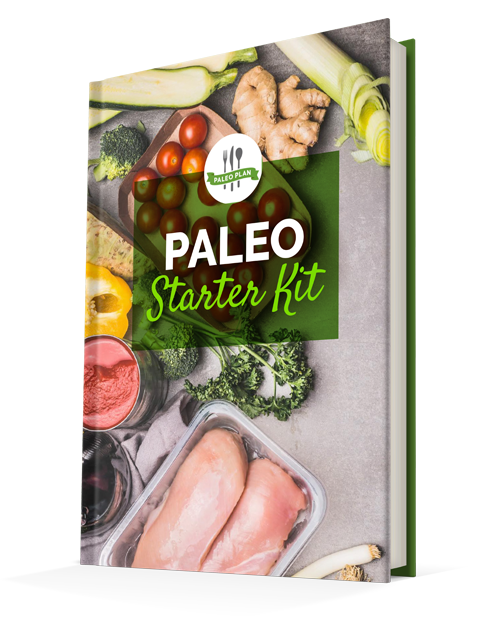
New research shows that morning cup of joe doesn’t only jolt you awake – it also protects your DNA. Light roast, dark roast, hot brew, cold brew: while all coffee has some benefits, the type of coffee and how it’s brewed can influence how healthy it is for you. Even the number of cups you drink per day matter, and in this case, less isn’t more.
So how many cups (and what kind) should you drink to reap these DNA-protecting benefits? Let’s dig into the research.
How Coffee Protects Your DNA

If you’re a regular coffee drinker, it can be associated with an increased life, protection against heart disease and cancer, reduced risk of neurological disorders, and other health benefits. (1)
Coffee Protects DNA From Breaking
We are made from DNA and all of our cells contain it. (2) Cells replicate constantly, and in this process, DNA and loads of other information are carried over. This process needs to be flawless to avoid errors in DNA and cellular problems.
The good news is that coffee helps to maintain the integrity of DNA as it’s copied from one cell to the next. How? Coffee is rich in antioxidants and can increase levels in the body, reducing oxidative damage that can “break” DNA in the replication process. (3) What’s more, the protective effects of coffee happen almost immediately, with a decrease in DNA strand breakage seen as soon as two hours after consuming it. (4) The protective benefits of coffee are only seen if you drink it regularly, though. (5)
Coffee Prevents Chronic Diseases
Regular coffee drinkers live longer and have a reduced risk of death from conditions like kidney disease, diabetes, stroke, cancer, and heart disease in part because coffee is rich in antioxidants that help to protect cell integrity. (6) One cup of coffee every day reduces the risk of death from these conditions by 12 percent, and two or three cups of coffee each day reduce the chance by 18 percent. (7)
More than 200 studies show that three or four cups of coffee on a daily basis reduce the risk of death compared to people who drink no coffee at all. It also lowers the risk for certain cancers, liver disease, and dementia. (8) It can even lengthen the expected lifespan in people with HIV. (9)
Coffee Protects Brain Cells From Damage
Coffee can help to protect the brain from neurodegenerative disorders and damage, such as Alzheimer’s disease and Parkinson’s. (10) Oxidative stress in the brain changes the way that brain cells work, and can be a primary cause in brain disorders as well as stroke, seizures, and brain trauma. (11)
The darker the coffee, the more it protects the brain.
Coffee protects the brain thanks to compounds found in dark roast varieties, known as phenylindanes. These compounds prevent proteins from clustering together in the brain, which could ultimately lead to Parkinson’s and Alzheimer’s if they occurred. Phenylindanes are found in higher levels in dark roast coffee because they increase with roasting length. The darker the coffee, the more it protects the brain. (12) These benefits are seen in both caffeinated and decaf versions.
Coffee contains another protective compound, EHT, in the waxy coating of the bean. When paired with caffeine, EHT works to protect against Parkinson’s and Lewy body dementia, two conditions that occur when the brain is subject to certain types of degenerative cellular damage. (13)
Coffee adds additional levels of protection against Alzheimer’s by stimulating a growth factor in the brain that helps prevent onset of the disease and symptoms of cognitive impairment. (14)
Coffee Protects Heart Cells From Damage
Coffee protects cardiovascular cells from being damaged thanks to its ability to boost mitochondrial function. (15) Not only does coffee give you a boost of energy, it also energizes your heart cells and keeps them from suffering cellular decline.
Beyond that, coffee also improves blood flow in the body, which is another protective factor against heart disease and complications. One study showed that coffee boosts blood flow in the fingers, which is reflective of how well blood can flow through small blood vessels throughout the rest of the body. (16)
Coffee Improves Overall Health
While health is complex, it’s really a series of cellular replications in each organ, tissue, and body system. DNA replications can degrade with age, which is why some health problems occur more frequently as people get older. (17) Coffee, thanks to antioxidants, can help to stave off certain effects of aging and protect cellular health in many other ways, including:
- Decreasing risk of type 2 diabetes (18)
- Supporting healthy and normal liver enzyme levels (19)
- Improving athletic performance (20)
- Protecting against recurrence of breast cancer (21)
- Decreasing risk of colorectal cancer (22)
- Improving weight control (23)
- Reducing risk of cavities (24)
Dark Roast vs. Light Roast

While all coffee shows a certain level of health benefits, dark roast coffee is more health protective than lighter roasts.
So, even if you’re sensitive to caffeine or want to reduce your consumption for other reasons, you can still reap the health benefits of coffee by drinking dark roast decaf. (27) Just make sure the decaf you choose is water-processed, as some types of decaf are stripped of caffeine using chemical solvents.
While all coffee shows a certain level of health benefits, dark roast coffee is more health protective than lighter roasts.
Research shows the best benefits from drinking between two and three cups of coffee daily, but you should still drink the amount that works for you. (28, 29) If you have specific questions about how coffee relates to your personal health, ask your doctor or a nutritionist.
How you drink your coffee can also influence how beneficial it is.
Cold brew coffee has become popular in recent years, but it might not be as good for you. Hot brew coffee, for example, has more antioxidants than cold brew, making it more health protective. (30)
Still, much of the research above shows that a quality cup of coffee comes with a significant amount of health benefits. So, regardless of how you take your cup of joe, it’s not the bad-for-you habit it’s made out to be.
More Coffee News: 5 Natural Benefits of Drinking Coffee and Surprising Side Effects
